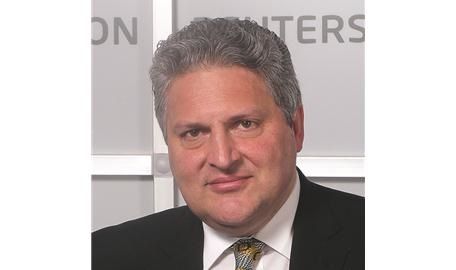SENIOR EXECUTIVE HIRING at the world’s leading global and regional investment banks strikes me as similar to the transfer process at leading football clubs with one striking exception: the days when star investment bankers could earn anything like soccer’s finest are long gone.
Compensation aside, as we enter an expected busy post-summer period in capital markets and the sprint to make budget stares management in the face while the 2017 planning process looms, banks are wasting little time. They are plundering competitors or churning internal ranks to accelerate strategic targets; optimising product and geographical footprints.
They’re filling empty slots – and not all empty on a voluntary basis if you get my drift – with a host of new faces. This past week, Barclays, Credit Agricole, Credit Suisse, Goldman Sachs and JP Morgan were all out with big people news.
At Barclays, Jes Staley hired JP Morgan’s global head of equities Tim Throsby to run his corporate and international division. This is the new mega-unit that houses the corporate and investment bank; consumer, cards and payments; Barclaycard and international wealth management. It’s a big move for the Australian, who built his career in equity derivatives.
His background and skill-set don’t suggest a close fit to the shape and diversity of BC&I. The new role is likely to take him out of his comfort zone.
Throsby’s move certainly resulted in bewilderment outside the firm – and probably inside it too – not because of his past experience but because Staley had once again yanked someone from his own former shop. Six of the 10 members of Barclays’ ExCom will now be ex-JP Morgan when Throsby starts. Most people think it’s creepy. If nothing else, you’d imagine Staley has been struck off Jamie Dimon’s Christmas card list.
Within a couple of days, however, JP Morgan had promoted Asia equities head Mark Leung and prime services boss Jason Sippel to replace Throsby. With pretty similar backgrounds – derivatives, hybrids and exotics across rates, credit and equities – they will at least speak the same language.
In similar rapid-fire style, Goldman Sachs promoted head of EMEA equity trading Philip Berlinski to co-head global equity trading and execution services – alongside New York-based Brian Levine – in place of Peter Selman, who is leaving after 22 years. Tom Cornacchia, co-head of global FICC sales, also left. He was replaced swiftly by global head of prime services John Willian, who will be Jim Esposito’s new partner.
MORE DIFFICULT TO call is the fate of Credit Agricole’s new-look investment bank. Gene Kim is the most recent addition, joining CA-CIB in a new position, based in New York, as head of international for global markets, a role created to oversee management of global markets in the Americas, Asia and the Middle East. He will also head up Americas global markets.
Kim joined from Standard Chartered, where he was regional head of financial markets for Greater China and North Asia. He will report to global markets head Isabelle Girolami, who herself only jumped ship from the House of Bill last September. At the time of leaving she had been head of ASEAN global markets.
CA-CIB is undergoing a comprehensive restructuring under the group’s Strategic Ambition 2020 programme and changes to the cast of senior characters are coming thick and fast. Sebastien Domanico, formerly head of FIG debt capital markets at Societe Generale CIB, has just joined as global DCM head in place of the outgoing Tim Hall. Domanico will also report to Girolami.
Like Hall, Vincent Fleury was another casualty, losing his position as head of securitisation to Arnaud d’Intignano. Elsewhere, Pierre Gay moved into another new role at the start of the year as head of global markets Europe, while Jamie Mabilat moved from running the infrastructure division to run debt optimisation and distribution, one of CA-CIB’s six major divisions.
The days when star investment bankers could earn anything like soccer’s finest are long gone
CREDIT SUISSE, CONTINUING the quest to right-size its investment bank, is similarly working to get the management balance right. Tim O’Hara, the 30-year veteran of the firm who was appointed head of global markets just last October, was fired last week. What surprised some is that he was replaced by Brian Chin, a man clearly on the up-and-up.
He was promoted first in March from running securitised products to co-heading global credit with David Miller when credit and structured finance were shunted together. Landing the global markets role was a big leg-up. All rather surprising in light of the bank’s US$1bn in illiquid and distressed credit and structured finance trading losses.
The subsequent shuttering of European securitised product trading, global distressed credit trading and long-term illiquid funding; and the dumping of illiquid US CLO positions, might in other circumstances have crimped Chin’s career. But he’s sitting pretty on the executive committee. How the trading businesses perform in the third quarter will provide a good indication of what will be on Chin’s agenda.
As a postscript to this whirlwind of names, ranks and serial numbers, one thing that stands out is how quickly JP Morgan and Goldman moved to close the gaps that opened up. Both firms maintain solid cadres of talented individuals who are culturally attuned. You get the sense that they will carry on, with the internal replacements in situ, as if nothing has happened.
For the European firms, the extent to which the new internal and external hires, working to new structures, will gel is a lot murkier. It’s definitely a case of outcome uncertain, and the sense you get is one of experimentation with an awful lot of fingers crossed.
